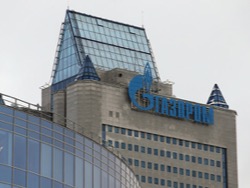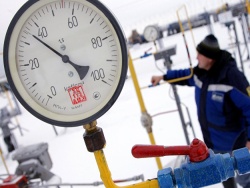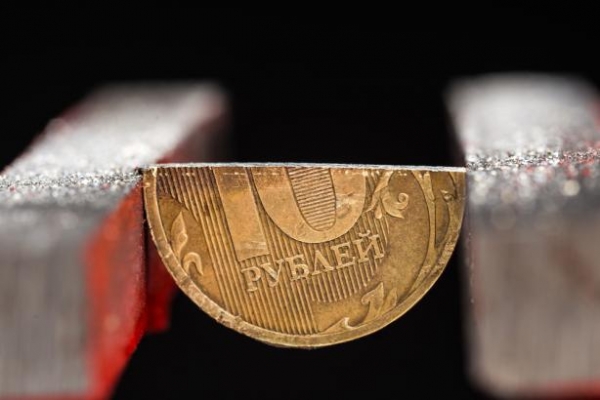
Sanctions against Russia have become a key element of the EU response to the annexation of Crimea and war in Eastern Ukraine. After their introduction in 2014, the duration of the sanctions identified in six months. Twice a year the European Council will determine whether sanctions are prolonged or not. While the restrictive measures against Russia entered into force from September 15, 2016, and then, the idea is that the European Council once again will decide whether the EU continue sanctions against Russia.
Unanimous decision once again will be taken by the Ministers of the EU countries, and it will address a number of key industries of Russia, had the political or economic connection with the countries-EU members.
The number of diplomatic measures, the freezing of accounts and visa bans, the EU has also adopted measures targeting sectoral cooperation with Russia, the so-called “economic sanctions”. Last touched on Russian banks, energy companies and a number of Russian defense enterprises.
At first glance, a fairly extensive list of companies and individuals indicates the balanced position of the EU on sanctions, and yet raises a number of questions about the final list of those who fell in the “kill zone” from the EU.
In particular, certain exceptions regarding sanctions can be traced in the energy sector, where Russian companies not only operate within the framework of economic interests.
For Russia’s energy pressure is also an instrument of foreign policy.
Therefore a partial validation of energy from the EU creates a chance for Russia to exert pressure on the European Union.
But the reason which prevents full validation of the energy sector — the EU’s dependence on Russian energy imports.
The lack of sanctions against “Gazprom” — the work of the Russian lobby in the EU?
After the collapse of the Soviet Union and the fall of the iron curtain, Russia has additional tools to advance their own interests in the West.
In particular, Russia began to use a consulting company to promote its own interests. For the first time the idea of cooperation with Western consulting companies, the Kremlin announced, the then media Minister Mikhail Lesin in 2001.
However, it is obvious that this proposal was not supported among the Kremlin elite. But in 2006, on the eve of preparations for the summit G8, the Russian government began the cooperation with Western consulting companies: Ketchum in the USA and its sister organization, Gplus Europe in Brussels. In 2007, a customer of those companies became “Gazprom”.
The need to improve the image of both Russia and “Gazprom” became the official leitmotif of Russia to start working with PR agencies.
However, the actual achievements differ significantly from the aims. Working with Western PR-agencies — the tool that Russia successfully uses as “soft power.”
In fact, the beginning of work with Western companies at the same time meant the projection of Russian interests in the public space in the West.
Over the past seven years our Northern neighbor has managed to spread the narrative the official vision of Russia in the Georgian-Russian war in 2008, to speak with Western partners in their language and it is likely that to affect the final decision on the sanctions list of individuals determined, after the annexation of Crimea in 2014.
In a recent report by the Brussels organization “Corporate Europe Observatory” indicates that the probable absence of the head of “Gazprom” Alexey Miller demonstrated the success of Western PR firms in the most important political decisions of EU bodies.
Moreover, the list of measures targeting sectoral cooperation between the EU and Russia and the imposition of economic sanctions specified that the three leading energy companies fall under the sanctions regime. Among them — “Rosneft”, “Transneft” and “Gazprom Oil” (the latter is included into group “Gazprom”).
But the leadership of Gazprom sanctions not affected. Therefore, we can assume that this tool of “soft power”, Russia has managed to successfully use for their own purposes.
It is significant that during the recent meetings of the European Council questioned the re-examination in respect of persons who fall under the sanctions, and also took additional measures of pressure. However, as before, never measures have not touched a key actor in the Russian energy sector.
Energy security and EU sanctions against Russia
It is also important to note the warning addressed specifically to the European Union.
Russian energy imports account for the lion’s share in the energy mix of EU consumption. In 2015, 39% of natural gas supplies in the EU were imports from Russia.
In fact, “Gazprom” — the main player in the natural gas market in Russia, as well as key partner of the European Union.
In individual member countries, Gazprom has a monopoly position for the supply of energy. Moreover, exports of “Gazprom” in Europe over the past few years has increased. This energy reality is also correlated with a decrease in the production of energy resources in the European Union.
The lack of energy independence of the European Union — another reason why sanctions bypassed “Gazprom”.
In 2014, the European Commission under the presidency of Jean-Claude Juncker launched an ambitious political project “Energy Union” where the security of supply EU — the first of five key priorities.
The termination of deliveries of energy resources to Ukraine in 2009 from Russia questioned its reliability in the energy market of the EU. This suggests that the European Union is aware of its dependence on imported energy resources and, in particular, from Russia.
Consequently, the Russian actions in Ukraine and energy dependence of the EU from our Northern neighbor to form a vivid example of how Russia uses the energy dependence of the EU as a tool of influence in the West.
However, the Energy Union aims to create new game rules on the energy market of the EU and break its dependence on Russia.
What’s next?
Every six months the European Council will decide whether to renew sanctions against Russia.
Therefore, there is a chance to review the sanctions companies and related entities. moreover, in February of this year the European Parliament voted for a resolution that imposed conditionality of sanctions to the final return of the Crimea to Ukraine.
On the one hand, such a step indicates a clear position of the EU, but on the other sanctions still do not cover all key Russian players in the political and economic arena of the EU.
Therefore, the main question that now confronts the European Union: how much more time it will take the EU to gain energy independence, to make “Gazprom” in the sanctions list of companies.
At the same time, Ukraine should pay attention to the role of lobbying Western companies and their influence on key decisions. Is to urge Western partners to revise the sanctions of individuals and companies to increase pressure on Russia by making “Gazprom” and its leadership in the list of those subject to restrictive measures.
Moreover, Ukraine should actively use the potential energy diplomacy as an instrument of pressure on Russia.
However, achieving this goal is possible only with the approach of the EU to the planned energy independence.








